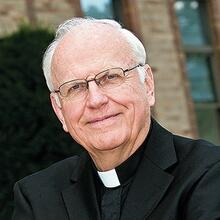21st Sunday, Ordinary Time Isa 66:18-21 is the conclusion of the book of Isaiah that began with God’s condemnation of Zion (a sacred name for Jerusalem) as utterly corrupt (1:21-28), and his promise of a purifying visitation or judgment that would make it righteous. This threatening passage, however, is immediately followed by the well known promise that a purified Zion will be a magnet for the nations (2:2-4): "In days to come, the mountain of the LORD’S house shall be established as the highest mountain and raised above the hills. All nations shall stream toward it" (v. 2). Isaiah 65 records the purification-judgment of Zion predicted in 1:21-28, and Isaiah 66 describes the nations’ pilgrimage to the purified city predicted in 2:1-4. Isa 66:18-21 (Sunday’s reading) tells how the divine Glory again resides in the city and the purified residents of the city go forth "to proclaim my glory among the nations." (Unfortunately, the Lectionary rendering [NAB] mistranslates as "fugitives" a Hebrew word that here means "survivors," i.e., those that survived the purifying judgment of Zion. Virtually all modern translations have "survivors.") The "survivors" or messengers will bring back from exiled Israelites ("your brothers and sisters") as well as the nations to make offerings on the holy mountain of Zion. Thus the book of Isaiah ends in triumph, describing how the Lord rectifies what humans have corrupted and dwells again in the midst of the holy people with the nations. Luke 13:22-30 similarly is concerned with the salvation of the nations as well as the holy people of God. The tone is somber as Jesus strides inexorably toward Jerusalem to meet his fate. Refusing to answer the question about how many will be saved, he cautions his audience that simply associating with him ("We ate and drank in your company") is not enough to enter the kingdom. Rather, conversion to Jesus is necessary, the kind of conversion shown by the great ancestors of Israel (Abraham, Isaac, and Jacob and all the prophets) and by nameless multitudes from the four corners of the earth. Just as Isaiah taught that it is not enough simply to live in Jerusalem without embracing the Lord’s purifying visitation, so it is not enough simply to be in Jesus’ company without embracing his way of life and heeding his words. The preacher can choose several paths: to emphasize the need of openness to the purifying word and work of God and not be content with passively going through the motions of religious observance; to show that God’s grace triumphs over corruption or indifference and brings outsiders to the center; to draw a parallel between God’s process of purifying the holy city of Jerusalem and Jesus’s journey to purify Jerusalem. Richard Clifford, S.J.
The Salvation of Nations
Show Comments (
)
Comments are automatically closed two weeks after an article's initial publication. See our comments policy for more.
The latest from america
This week, a music festival returns to the Chiquitos missions in Bolivia, which the Jesuits established between 1691 and 1760. The story of the Jesuit "reductions" was made popular by the 1986 film ‘The Mission.’
The world can change for the better only when people are out in the world, “not lying on the couch,” Pope Francis told some 6,000 Italian schoolchildren.
Our theology of relics tells us something beautiful and profound not only about God but about what we believe about materiality itself.
"3 Body Problem" is an imaginative Netflix adaptation of Cixin Liu's trilogy of sci-fi novels—and yet is mostly true to the books.







